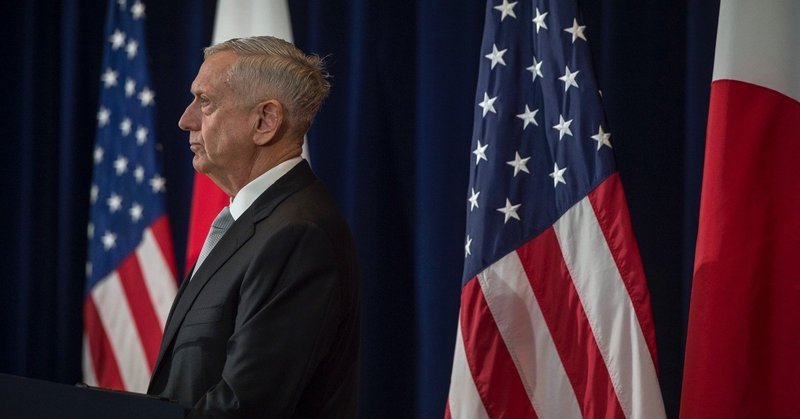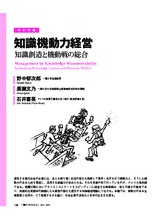
マティス前国防長官の若い頃 (“Call Sign Chaos”) | きのう、なに読んだ?
ジェームス・マティスは元海兵隊大将にして、トランプ政権のもとで2年間国防長官を務めた人物だ。海兵隊屈指の読書家、知識人として知られ、歴戦不敗なことから Mad Dog(直訳は狂犬だけど、ニュアンスとしては「勇猛果敢」が近いかな)と呼ばれることもあった。マティス長官は、常にカオスな感じのトランプ政権の中で、私には唯一の「まともな人」に見えていた。ボブ・ウッドワードがトランプ政権内部を描いた “Fear” (「恐怖の男」)を読んでも、大統領にまともな議論を説ける唯一の閣僚、という印象だった。
そのマティス前長官の回顧録、Call Sign Chaos を読み始めた。
濃い。無駄がない。断定調だけど嫌味がない。命を賭けて獲得した経験を凝縮して語ってる。ストレートパンチがドスドス入ってくる感じで、序章と第1章だけで40箇所以上ハイライトしてしまった。
自分メモ用にその一部を抜粋したので、荒い訳をつけて、ご紹介します。
(以下、抜粋と訳)
生い立ち
位置: 201
How many parents would drive their teenager to the highway outside town so that he could hitchhike across the West?
—-
I had started hitchhiking in 1964, when I was thirteen. I had an insatiable penchant to see what was out there.
—-
It was a simpler time back then, with a stronger sense of trust in one’s fellow Americans.
—-
I was in good shape, accustomed to sleeping outdoors, and equally curious about books, people, and open country.
西部をヒッチハイクで回りたいというティーンエイジャーの子どもを、町外れの国道まで車で送ってくれる親なんて、なかなかいない。
ーーー
私がヒッチハイクを始めたのは1964年、13歳のときだ。とにかく広い世界を見たいという渇望感があった。
ーーー
当時はシンプルな時代だった。アメリカの同胞に対する信頼感が今より強かった。
ーーー
私は体が丈夫で、野宿に慣れていて、本、人、広い大地のどれに対しても好奇心があった。
位置: 166
LIKE MOST TWENTY-YEAR-OLDS, I thought I was invulnerable. Then, on a steep ridge in eastern Washington, in the winter of 1971, I fell toward my death. I was looking at the tiny figures of workers on a dam far below when my foot slipped and I plunged down an icy sheet toward the Columbia River.
—-
When I came to, I was bleeding from my nose, but not from my ears, and I wasn’t vomiting, so I knew my skull wasn’t fractured.
——
He offered to drive me the forty miles back to my home. “I appreciate it,” I said, “but I’d like to heal up a bit first.” He gave me an understanding look. A working man, he was outdoors every day. He knew the type. If I chose to take my time before returning home, that was my business.
—-
“We don’t get to choose when we die,” he said. “But we do choose how we meet death.”
20歳というものは、大抵、自分が不死身だと思っている。私もそうだった。そんな1971年の冬のある日、ワシントン州東部の険しい尾根で、私は死に向かって滑落した。遥か下の方にダム作業員が豆粒のように見えるのを眺めていたら、足が滑り、氷の斜面をコロンビア川に向かって真っ逆さまに落ち始めたのだ。
ーーー
気がつくと、鼻血は出ていたが耳からの出血はなく、嘔吐もしてない。頭蓋骨は無事だ。
ーーー
(助けてくれたダム作業員は)40マイル先の自宅まで車で送ると言ってくれた。「ありがとうございます」と私は答えた。「でも、もう少し治ってから。」彼は分かるよ、という目でこちらを見た。彼は、毎日外で働いている。こういう気質の奴もいる。私が家にすぐ戻りたくないと言うなら、それ以上のお節介は不要だ。
ーーー
「いつ死ぬかなんて、決められない。でも、死をどう迎え入れるかは自分で決める。」(予備役の訓練官の言葉)
国防長官になった経緯
位置: 143
I’m old-fashioned: I don’t write about sitting Presidents.
私は古風な人間だ。現役の大統領については、書かない。
位置: 84
During the interview, Mr. Trump had asked me if I could do the job of Secretary of Defense. I said I could. I’d never aspired to the job, and took the opportunity to suggest several other candidates I thought highly capable of leading our defense. Still, having been raised by the Greatest Generation, by two parents who had served in World War II, and subsequently shaped by more than four decades in the Marine Corps, I considered government service to be both honor and duty. In my view, when the President asks you to do something, you don’t play Hamlet on the wall, wringing your hands. To quote a great American athletic company’s slogan, you “just do it.”
面談中、トランプ氏は私に国防長官の仕事ができるか、尋ねた。私は、出来ますと答えた。国防長官になりたいと思ったことは一度もなく、面談では私が非常に有能な適任者と思う人を何名か推薦した。一方で私は、大恐慌時代に育った世代に育まれ、両親とも第二次世界大戦に従軍した家庭に育ち、その後40年海兵隊で鍛えられた人間だ。そんな私にとって、政府に奉職することは名誉であると同時に義務でもあった。大統領に何か依頼されているのに、ハムレットのように迷ってはいけない。アメリカの偉大なスポーツメーカーのスローガンを借りるなら、「Just Do It」だ。
海兵隊の組織風土
位置: 112
The Marines’ military excellence does not suffocate intellectual freedom or substitute regimented thinking for imaginative solutions.
海兵隊の軍事力は優れているが、知的自由は阻害されない。創造性豊かな提案を、型にはまった考えで潰してしまうこともない。
位置: 227
Trying didn’t count; you had to deliver.
頑張りはどうでも良い。成果を出さねばならない。
位置: 118
Institutions get the behaviors they reward. Marines have no institutional confusion about their mission: they are a ready naval force designed to fight well in any clime or place, then return to their own society as better citizens. That ethos has created a force feared by foes and embraced by allies the world over, because the Marines reward initiative aggressively implemented.
組織が高評価する行動は、そのまま風土になる。海兵隊としてのミッションにブレはない。どのような状況や場所でも即戦可能な海軍力であり、地元により良い市民となって帰還することだ。この精神が、敵に恐れられ世界中の同盟国に受け入れられる軍事力を形作っている。それが実現しているのは、海兵隊では、自発的な動きを果敢に実現することを評価するからだ。
学び続ける組織
位置: 128
It now became even more clear to me why the Marines assign an expanded reading list to everyone promoted to a new rank: that reading gives historical depth that lights the path ahead. Slowly but surely, we learned there was nothing new under the sun: properly informed, we weren’t victims—we could always create options. Habits ingrained in me over decades of immersion in tactics, operations, and strategy, in successes and setbacks, in allied and political circles, and in dealing with human factors, guided by the Marine Corps’s insistence that we study (vice just read) history, paid off.
海兵隊は、昇格者全員に大量の課題図書を課す。その理由が、ますますはっきり理解できた。課題図書は歴史の深さを教えてくれ、それが次への道を照らしてくれる。少しずつ、でも確実に、この世に新しいことなど何もないことを我々は学んだ。適切な情報さえ得れば、選択肢を生み出すことができ、犠牲にならずに済むのだ。海兵隊は隊員に、歴史を研究する(読むだけではなく)ことを厳しく求めた。その指針に導かれ、何十年も戦術、運用、戦略をどっぷり学び、成功も失敗も経験し、同盟国や政治との関係の中から、そしてヒューマン・ファクターに対応するなかで、身についた習慣が実を結んだ。
人材
位置: 117
The two qualities I was taught to value most in selecting others for promotion or critical roles were initiative and aggressiveness. I looked for those hallmarks in those I served alongside.
昇進や大事な役職に際して人材を選ぶとき、自発性と果敢さの、2つの資質を特に重視するよう教えられた。共に働く仲間からも、そうした資質を見つけようとした。
位置: 364
The Marine philosophy is to recruit for attitude and train for skills.
海兵隊の方針は、態度が適切なものを採用し、スキルを訓練するというものだ。
リーダーシップ
位置: 386
In the Corps, I was taught to use the concept of “command and feedback.” You don’t control your subordinate commanders’ every move; you clearly state your intent and unleash their initiative. Then, when the inevitable obstacles or challenges arise, with good feedback loops and relevant data displays, you hear about it and move to deal with the obstacle. Based on feedback, you fix the problem.
海兵隊では、「命令とフィードバック」という方針を使うよう、教えられた。部下の一挙手一投足を指示するのではない。自分の意思を明確に伝え、部下の自発性を解き放つのだ。その後、避けがたい障害や課題が出てくるが、よいフィードバックの仕組みと意味あるデータの一覧があれば、その件は耳に入ってくる。そこで、その障害に対応する。フィードバックに基づき、課題解決するのだ。
位置: 389
George Washington, leading a revolutionary army, followed a “listen, learn, and help, then lead,” sequence. I found that what worked for George Washington worked for me.
独立運動に際して陸軍を率いたジョージ・ワシントンは、「聞く、学ぶ、助ける、最後に統率する」という順序を用いた。ジョージ・ワシントンのやり方は、私にも合っていた。
(抜粋と訳、ここまで)
さて、海兵隊組織については「失敗の本質」を書いた野中郁次郎さんがかなり研究なさっている。短い論文と、書籍を1つずつ、ご紹介しておこう。2万字、300円のこの論文を読んで、私は海兵隊の組織に惚れちゃった。
今日は、以上です。ごきげんよう。
(Picture by US Secretary of Defense)
この記事が気に入ったらサポートをしてみませんか?

